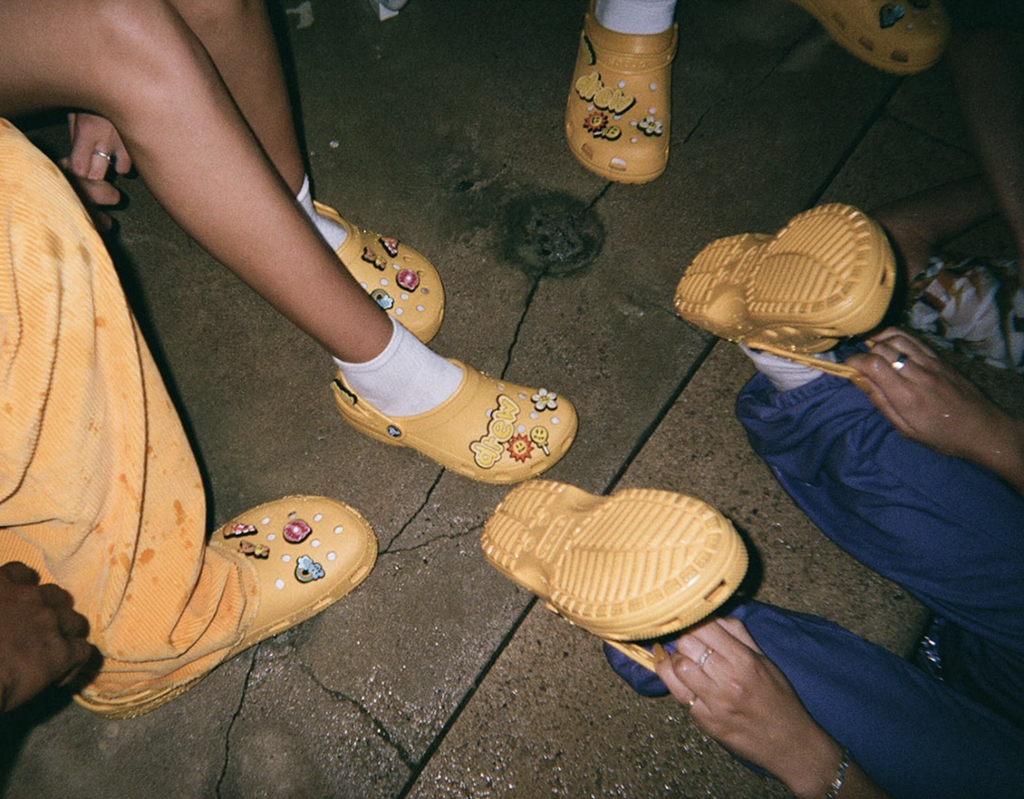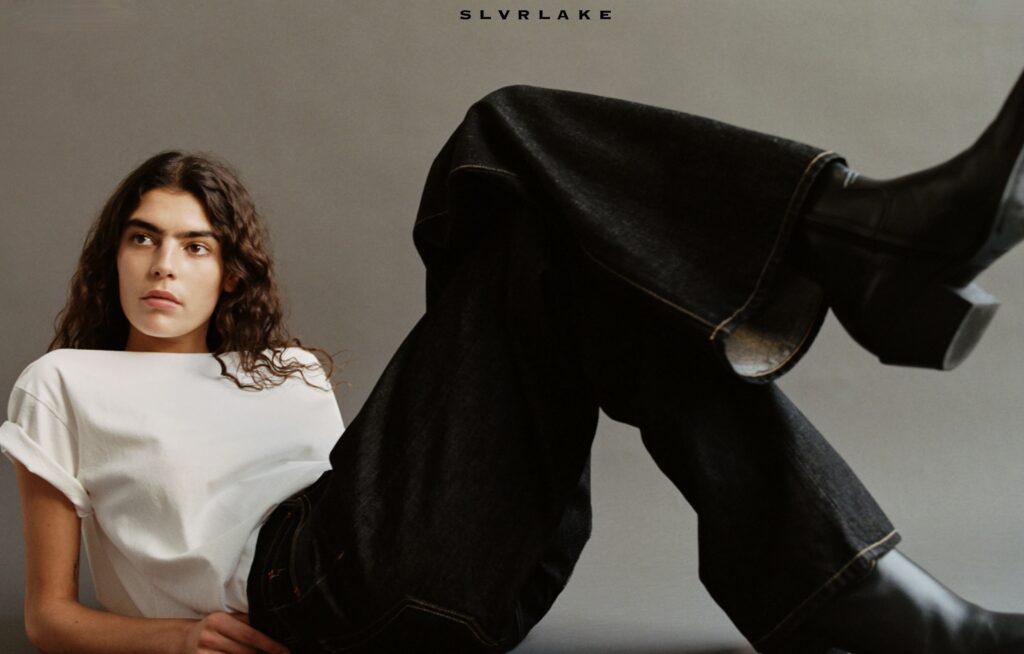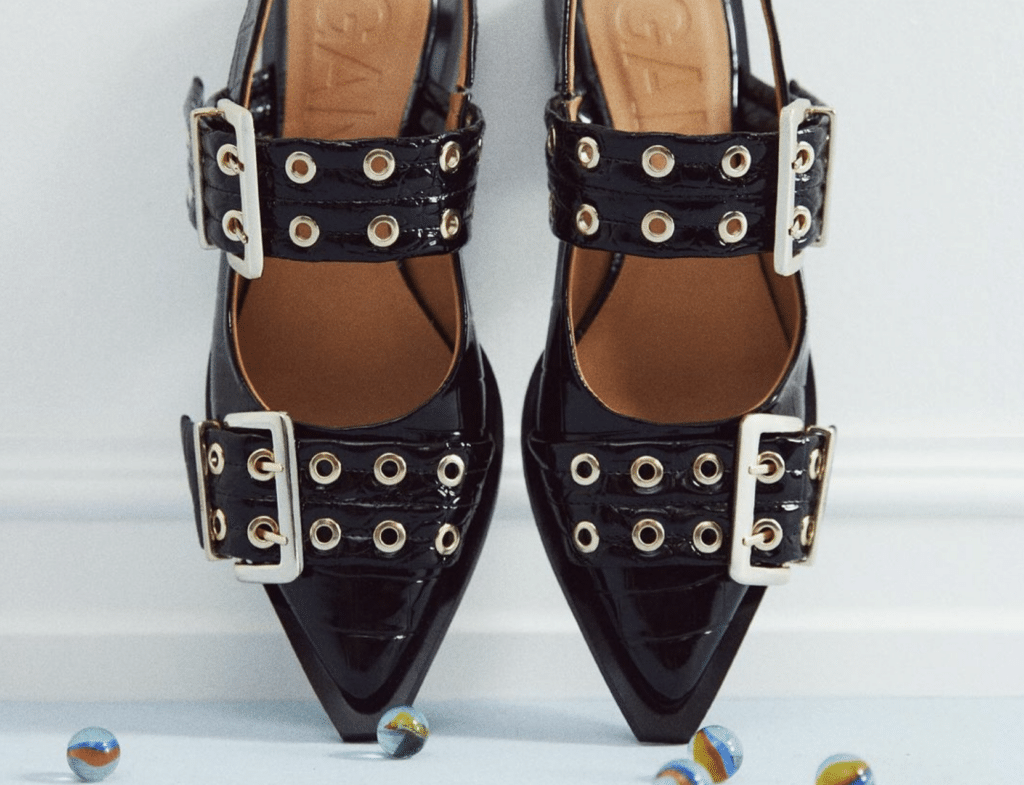The U.S. International Trade Commission will initiate a probe into the import and subsequent sale in the U.S. of footwear and packaging that allegedly infringes the trademark-protected offerings of Crocs. The footwear company, whose foam clogs have surged in popularity in the midst of the COVID-19 pandemic, filed a complaint with the ITC in June claiming that two dozen companies – from Skechers to Loeffler Randall – are engaging in the unlawful importation and sale of “certain footwear products and packaging that violate registered trademarks used in connection with certain Crocs shoes,” including Crocs’ registered trademark rights in its “CROCS” word mark, as well as the 3-D design of its famous footwear.
In a July 6 Notice of Institution of Investigation, the ITC revealed that it has voted in favor of launching an investigation in order to determine whether the companies cited by Crocs, including Skechers, Hobby Lobby, Loeffler Randall, and 20 others, are, in fact, importing into the U.S. and selling trademark infringing goods in violation of section 337 of the Tariff Act of 1930, and whether they are violating the Tariff Act “by reason of false designation of source or trademark dilution” in connection with the lookalike products, and thereby, creating “a threat or effect … [of] destroy[ing] or substantially injuring an industry in the United States.” Against that background, the ITC says that it will consider “the plain language description of the accused products or category of accused products, which defines the scope of the investigation,” namely, “casual footwear with holes in the upper and such footwear’s packaging.”
Initiating the matter in June by way of a 175-page complaint, Crocs asserted that while there is a “virtually infinite number of different, non-infringing footwear styles in existence today,” and there is a lack “any actual competitive need to use the Crocs marks in commerce,” a number of competitors have taken to “intentionally and frequently” replicating its “unique and recognizable” footwear. The allegedly copycat products are “not due to competitive need,” the Colorado-based footwear company claims, “but because of the significant goodwill that the Crocs marks have accumulated over the past two decades during their use by Crocs.”
As a result of such widespread “intentional” infringement, which is likely to confuse consumers as to the source of the unauthorized products, and which will “continue to cause substantial injury to Crocs, including at least substantial injury to the goodwill and reputation for quality associated with [its trademarks],” Crocs has sought a General Exclusion Order to exclude from entry into the U.S. “all imported shoes that violate Crocs rights in [its] asserted trademarks.” More than that, Crocs is also seeking cease-and-desist orders directing the respondents “to halt the importation, marketing, advertising, demonstrating, warehousing of inventory for distribution, sale, and use of imported articles in the U.S.”
Within the next 45 days, the ITC will issue an order setting the procedural schedule and the target date for the conclusion of the investigation – with the Administrative Law Judge “required to make an initial determination on violation and a recommended determination on remedy, bonding, and the public interest no less than four months before the target date.” Should the ITC ultimately side with Crocs, it would not be the first time. In July 2011, more than 5 years after Crocs initiated an ITC proceeding over the import and sale of copycat footwear, the trade organization formally barred 11 companies from importing and selling shoes that infringe two of Crocs’ design patents on the basis that they were engaged in the “unlawful importation and sale of certain foam footwear” that infringed Crocs’ patents.
The case is In the Matter of Certain: Casual Footwear and Packaging Thereof, 3551 (ITC).











